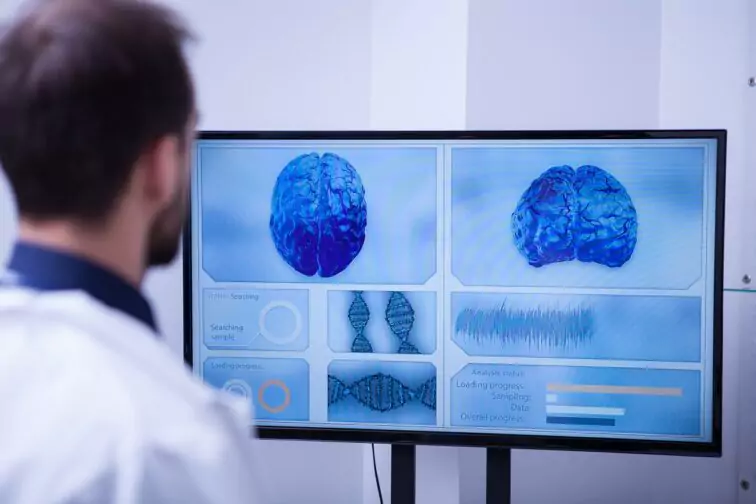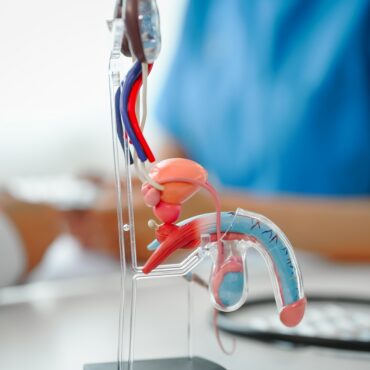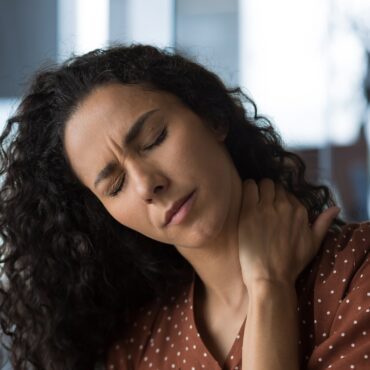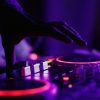-
 play_arrow
play_arrow
BayRadio Listen Live Broadcasting in Spain

Annually, between 110,000-120,000 people suffer a stroke in Spain, of which approximately half are left with disabling sequelae or die, according to data from the Spanish Society of Neurology (SEN). In Spain, it is the leading cause of death in women, the second in men; as well as the first cause of acquired disability in adults and the second of dementia.
“These are not encouraging words, although the good news is that 9 out of 10 cases of stroke can be avoided if a healthy lifestyle is followed and care is taken to the risk factors that we will detail later,” says Dr. Mirko Alavena, a specialist in Neurology at the Quirónsalud Torrevieja Hospital.
Specifically, he explains that cerebral apoplexy, also known as cerebrovascular accident (CVA) or stroke, is a medical emergency that can have serious health consequences and is usually caused by an interruption or alteration of blood flow in a part of the brain, either by the occlusion of an artery (infarction) or its rupture (haemorrhage).
THE ONSET OF SUSPICION
If you suspect a stroke, Dr. Alavena points out that you should evaluate:
1. Face: Command the person to smile; Notice if one half of the face moves and the other doesn’t.
2. Arms: Instruct the person to raise and move the arms; Observe if one is weaker or clumsier.
3. Speech: Speak to the person and ask them to speak; Observe if they can’t utter language or if they don’t understand what is being said.
4. Time: If any of the above is true, we must immediately call the emergency number, as time is the most important factor in the chances of recovery.
Thus, the Quirónsalud Torrevieja expert highlights that it is crucial to recognise the symptoms of stroke to seek medical attention immediately; The most common ones are listed as:
• Sudden numbness or weakness in the face, arm, or leg; and especially on one side of the body.
• Difficulty speaking or understanding language.
• Sudden loss of vision in one or both eyes.
• Severe dizziness, loss of balance, or loss of coordination.
• Sudden, severe headache with no known cause.
• It’s important to remember the acronym F.A.S.T to recognise stroke symptoms: ‘Face’, ‘Arms’, ‘Speech’, and ‘Time’.
“If someone shows these symptoms, it is essential to call the emergency services immediately. Once the acute event has been treated, the person should receive rehabilitation of acquired brain damage (neurorehabilitation) to recover as much as possible their functionality prior to the event,” says the doctor.
Stroke is a serious condition, he continues, and requires immediate medical attention. That is why this specialist insists on the importance of recognising the symptoms and seeking help quickly: “This can make a difference in the patient’s prognosis and recovery.”
And, as the neurologist laments, it can be permanent if the neurological damage persists. Of course, remember that, in some cases of heart attack, blood flow can be restored spontaneously and the symptoms disappear, which is known as a transient ischemic attack or TIA, although people who suffer from them have a very high chance of suffering a permanent cerebral infarction in the following weeks if adequate preventive measures are not taken.
HOW TO PREVENT STROKE
With this, Dr. Mirko Alavena, specialist in Neurology at Quirónsalud Torrevieja, argues that, by taking measures to prevent stroke, such as maintaining healthy blood pressure, following a balanced diet and maintaining an active lifestyle, the risk of suffering a stroke can be significantly reduced.
“Although some risk factors for stroke, such as age and family history, cannot be changed, there are steps that can be taken to reduce the risk of stroke,” he says.
Some recommendations include, according to this expert:
• Maintain healthy blood pressure: Controlling high blood pressure can help reduce the risk of stroke.
• Eat a balanced diet: Eating a diet rich in fruits, vegetables, whole grains, fish, and limiting saturated fat and sodium intake can help maintain cardiovascular health.
• Maintain a healthy weight: Maintaining a body mass index (BMI) within the normal range can reduce the risk of stroke.
• Exercise regularly: Regular physical activity helps keep your heart and blood vessels healthy.
• Don’t smoke: Smoking damages blood vessels and increases the risk of stroke.
• Limit alcohol consumption: Excessive alcohol consumption can increase the risk of stroke
Written by: BayRadio News
Similar posts
Recent Posts
- Robotic Surgery for Prostate Cancer: What Is Radical Prostatectomy and How Does the Da Vinci Robot Improve It
- What Is Fibromyalgia? Symptoms and Treatments of an Invisible Illness That Requires Specialized Attention
- AMASVISTA Glass: 10 reasons to choose SUNFLEX glass curtains
- Robotic Surgery, Immunotherapy and Comprehensive Care Take Centre Stage at Pancreatic Cancer Conference at Quirónsalud Torrevieja
- Robotic Surgery Against Ovarian Cancer: Greater Precision, Less Pain and Faster Recovery

Ctra. Cabo La Nao, CC La Nao, Local 6 03730 Javea, Alicante, Spain
Advertise with us
Do you have a business in Spain? Do you provide a service to the expat community in Spain? Would you like your message to reach over 500.000 people on a weekly basis?
BayRadio is a community orientated radio station offering fantastic content to our many listeners and followers across our various platforms. Contact us now and find out what Bay can do for you!
Our business is helping your business grow.
BAY RADIO S.L. © 2024. ALL RIGHTS RESERVED. WEB DESIGN BY MEDIANIC







